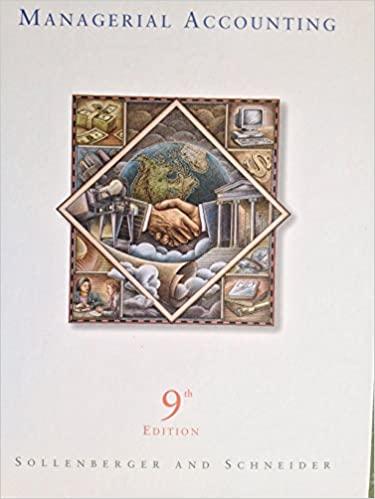. Special Sales Pricing. Aoi Company manufactures study lamps in Osaka, Japan. Next year's budget estimates sales...
Question:
. Special Sales Pricing. Aoi Company manufactures study lamps in Osaka, Japan. Next year's budget estimates sales to be 500,000 lamps at \(¥ 1,700\) each. Variable costs are \(¥ 900\) per lamp, and fixed costs are budgeted at \(¥ 300\) million or \(¥ 600\) per lamp. Recently, a purchasing agent from Nationwide Superstores in the U.S. offered to buy 100,000 lamps at a price of \(¥ 1,350\) each. By working overtime and adding extra shifts, Aoi would have sufficient capacity. Additional overtime premiums would be \(¥ 7.5\) million. Additional supervision costs are \(¥ 2\) million. Total selling and administrative expenses will not change if the order is accepted.
Aoi's finance manager argues, "With the extra volume, the full cost of regular sales would be reduced from \(¥ 1,500\) per unit to \(¥ 1,400\). At this level Aoi would make an extra \(¥ 100\) per unit on all regular sales but still lose money on the special sales because of overtime costs and the lower price." He thinks that the "economics of the deal" are too risky and that it violates the firm's strategic pricing policies that have helped Aoi create a reputation for quality.
\section*{Required:}
1. Is the finance manager's quantitative analysis sound? Explain your decision.
2. What does the finance manager mean by "too risky?"
3. Why might this be a violation of the firm's pricing policies?
Step by Step Answer:

Managerial Accounting
ISBN: 9780538842822
9th Edition
Authors: Harold M. Sollenberger, Arnold Schneider, Lane K. Anderson





